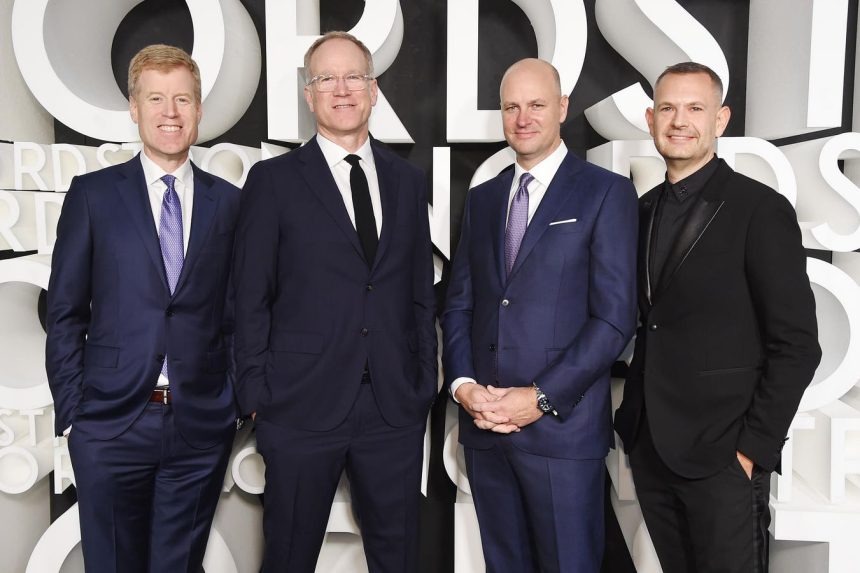The Nordstrom Family Reclaims Its Legacy: A Return to Private Ownership
The Nordstrom saga, a century-long tale of retail evolution, has reached a pivotal juncture. The Nordstrom family, descendants of founder John W. Nordstrom, has successfully orchestrated a $6.25 billion deal to take the company private, marking a significant shift after over 50 years as a publicly traded entity. This move, spearheaded by brothers Erik and Peter Nordstrom, CEO and president respectively, along with cousin Jamie Nordstrom, chief merchandising officer, signifies the family’s enduring commitment to the brand and their desire to reshape its future trajectory. Partnering with Mexican retail giant El Puerto de Liverpool, which holds a 49.9% stake, the Nordstrom family will regain a controlling 50.1% interest upon the deal’s anticipated closure in the first half of 2025. This return to private ownership promises a new era for the 381-store chain, one guided by the family’s deep-rooted values and long-term vision.
The path to privatization has been a protracted and challenging journey. A previous attempt in 2018, involving a partnership with private equity firm Leonard Green & Partners, was ultimately rebuffed by the board, deemed inadequate at $8.4 billion. The current agreement, valued at $24.24 per share, reflects a significantly different financial landscape. Securing the board’s approval and the backing of financial advisors like Morgan Stanley represents a critical victory. Pending regulatory approval and the endorsement of two-thirds of Nordstrom shareholders, both anticipated formalities, the family’s vision will finally be realized. This transition promises a renewed focus on the customer experience, a hallmark of the Nordstrom brand since its inception.
Nordstrom’s recent performance has been marked by challenges. Industry analysts point to missteps in merchandising, operations, and store standards, contributing to a decline from its peak market value of nearly $15 billion a decade ago. The company’s revenue trajectory, peaking at $15.9 billion in 2019, has since declined to $14.2 billion in fiscal 2023. While the total store count remains relatively stable, the composition has shifted dramatically. The number of full-priced Nordstrom locations has shrunk, while the off-price Nordstrom Rack chain has experienced significant growth, becoming a key driver of the company’s overall performance.
The Nordstrom Rack division has emerged as a vital engine of growth, witnessing an 11% increase in sales this year, compared to a modest 1% uptick for the flagship Nordstrom stores. With 280 stores currently operating and further expansion planned, Rack’s contribution to overall revenue is substantial. This shift in focus towards the off-price segment reflects the evolving retail landscape and the growing consumer demand for value-driven offerings. While the Nordstrom family and Liverpool aim to revitalize the luxury flagship stores, the Rack division is expected to remain a cornerstone of their strategic approach.
Liverpool, a prominent player in the Mexican retail market with over 176 years of experience, brings significant operational expertise and a diverse portfolio to the partnership. Their vast network of department stores, specialty boutiques, and shopping centers, combined with a robust credit card business, underscores their retail prowess. Liverpool’s logistical capabilities, including centralized fulfillment centers and cross-dock local centers, are expected to enhance Nordstrom’s operational efficiency. Furthermore, their expertise in credit card services could provide a valuable opportunity to bolster Nordstrom’s credit card segment, a relatively modest contributor to their current revenue stream. While Liverpool’s experience is primarily centered in Mexico, the burgeoning Mexican-American consumer market in the US presents a potential avenue for growth and synergy.
The Nordstrom family’s return to private ownership, coupled with the strategic alliance with Liverpool, is poised to reshape the company’s future. Freed from the pressures of quarterly reporting and shareholder expectations, the leadership team can focus on long-term growth and strategic investments. This includes revitalizing the flagship Nordstrom stores, which face increasing competition from luxury retailers like Saks Fifth Avenue and Neiman Marcus, particularly in the e-commerce arena. The Nordstrom family’s commitment to customer experience, combined with Liverpool’s operational expertise, offers a promising foundation for navigating the evolving retail landscape. This partnership signifies not just a change in ownership but a renewed dedication to the brand’s legacy and a commitment to delivering an exceptional customer experience. The future of Nordstrom, now steered by the family’s vision and bolstered by a strategic partnership, holds the potential for a resurgence in the luxury retail market.



